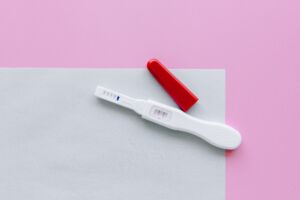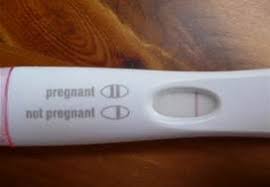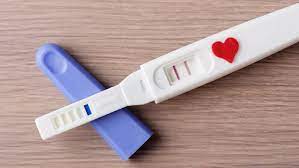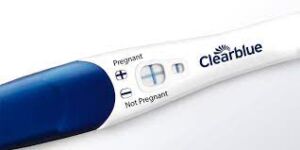Your First Step to Knowing: Pregnancy Test Made Simple
Pregnancy tests are a vital part of determining whether or not a woman is pregnant. These tests, which can either be done at home with a kit or in a doctor’s office, use urine or blood samples to detect the hormone hCG (human Chorionic Gonadotropin). This hormone is released by the placenta shortly after conception and remains in increased levels throughout pregnancy. Pregnancy tests are generally reliable when used correctly, providing accurate results for most women within just a few days of missing their period. Home pregnancy tests are convenient and easy to use but should always be confirmed by a doctor for those seeking conclusive results. Please keep reading for details on the following topics:
Overview of pregnancy tests
Reasons why pregnancy tests are done
Types of pregnancy tests
How soon can a pregnancy test be done
How to prepare for a pregnancy test
How a pregnancy test is done
How results may show
How to interpret the results of the pregnancy test
Factors contributing to negative results
Factors contributing to false positive results
Next steps after a positive pregnancy test result
When to seek urgent medical care

Overview of pregnancy tests
The test detects the presence of a hormone called human chorionic gonadotropin (hCG) which is produced in the woman’s body after the egg is fertilized by sperm.
The level of hCG hormone in the body rises within 6 days after the fertilization of the egg
Thereafter, the level of hCG in the woman’s body continue to double every 2 days
Reasons why pregnancy tests are done
Missed period
Woman thinks that she is pregnant
Trying to conceive
Had an issue with birth control methods
Types of pregnancy tests
Urine tests- Can be done at home or at doctor’s office and do not require doctor’s order
Blood tests- Done at a lab and must be ordered by a doctor
Best time to take a pregnancy test
Are you wondering when is the best time to take a pregnancy test? Taking a pregnancy test too early can lead to a false negative result, so it’s important to understand when the ideal time is to take a test. Generally speaking, the best time to take a pregnancy test is about one week after you miss your period. This is when the level of the hormone hCG in your body is high enough to detect whether you are pregnant. However, if you are uncertain about when you might have conceived, you can wait a few weeks before taking a test. Testing earlier than this may lead to inaccurate results. The test is usually taken the first thing in the morning
How soon can a pregnancy test be done
A day after a missed period
Two weeks after intercourse
If signs of pregnancy are present
How to prepare for a pregnancy test
Urine obtained during the early hours of the morning is usually recommended as it provides more accurate results
Read the label on the kit correctly
Ensure that the kit is not expired
How a pregnancy test is done
Clean the vulva prior to collecting the sample
Urinate in the designated container
Follow the directions on the kit
Using the dropper obtained in the kit, apply a few drops of urine on the test strip
OR
Hold the test stick in the urine
Wait a few minutes for the results

How results may show
Depending on the type of kit used
A change in color
Colored lines
A symbol, such as plus or minus
The words “pregnant” or “not pregnant”
How to interpret the results of the pregnancy test
The control line is found on the left side of the test
The appearance of zero lines- Invalid (the control line is missing)
The appearance of one line or a “–“- Negative (not pregnant)
The appearance of one faint line- False negative (consider factors)
The appearance of one faint line and one darkened line- False positive (consider factors)
The appearance of two lines or a “+”- Positive (suspected pregnancy)
Factors contributing to negative results

Certain medications- diuretics, antihistamines
Diluted urine- drank too much water before the test
Expired kit
Read the test wrong
Test done too soon
Factors contributing to false positive results

Menopause
Ovarian cysts
Ectopic pregnancy
Certain medications- tranquilizers, anticonvulsants, hypnotics, fertility drugs
Tumor
Expired kit
Next steps after a positive pregnancy test result

Visit a health care provider for additional care and advice
Confirmatory tests have to be conducted such as ultrasound scan and blood test
Initiate prenatal care at your healthcare facility of choice
Ensure proper nutrition
Eliminate unhealthy practices such as smoking, drugs and alcohol
When to seek urgent medical care
It is important to know when to seek urgent medical care, as delaying appropriate treatment can lead to further health complications. If you experience any of the following symptoms, you should seek medical help immediately. If you have any doubts about whether you should seek medical care, it is always better to err on the side of caution and consult with your doctor.
Test is positive
Took test twice and received different results
Disclaimer: The information provided in this content is for general informational purposes only. It is not intended as medical or healthcare advice, diagnosis, or treatment. Always seek the advice of a qualified healthcare professional with any questions you may have regarding a medical condition or healthcare decisions.

